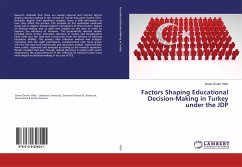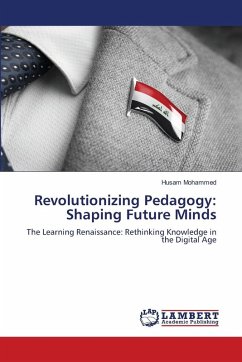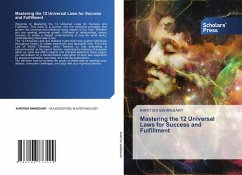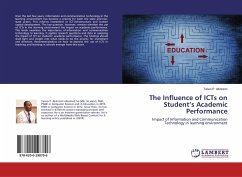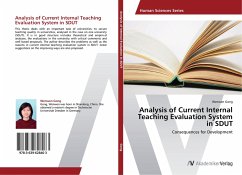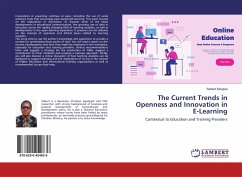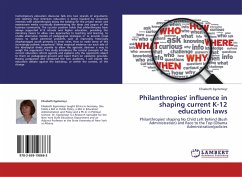
Philanthropies' influence in shaping current K-12 education laws
Philanthropies' shaping No Child Left Behind (Bush Administration) and Race to the Top (Obama Administration)policies
Versandkostenfrei!
Versandfertig in 6-10 Tagen
32,99 €
inkl. MwSt.

PAYBACK Punkte
16 °P sammeln!
Contemporary education discourse falls into two strands of arguments; one claiming that American education is being hijacked by corporate interests with philanthropies doing the bidding for the private sector and mainstream media uncritically disseminating the ideas and jargon of the business community. The counter position holds that philanthropies have always supported K-12 schools and higher education, providing the monetary means to allow new approaches to teaching and learning, to enable alternative models of pedagogical strategies or to provide novel means to tackle perennial problems su...
Contemporary education discourse falls into two strands of arguments; one claiming that American education is being hijacked by corporate interests with philanthropies doing the bidding for the private sector and mainstream media uncritically disseminating the ideas and jargon of the business community. The counter position holds that philanthropies have always supported K-12 schools and higher education, providing the monetary means to allow new approaches to teaching and learning, to enable alternative models of pedagogical strategies or to provide novel means to tackle perennial problems such as improving historically disadvantaged youth primarily in inner cities. How to make sense of this increasingly polemic cacophony? What empirical evidence can each side of the ideological divide provide to allow the agnostic observer a way to weigh the arguments? This study introduces the central concepts of the current education reform agenda and explains why the opponents object to themon pedagogical ground and reject them on epistemic grounds. Having juxtaposed and compared the two positions, I will situate the education debate against the backdrop, or within the context, of the change



